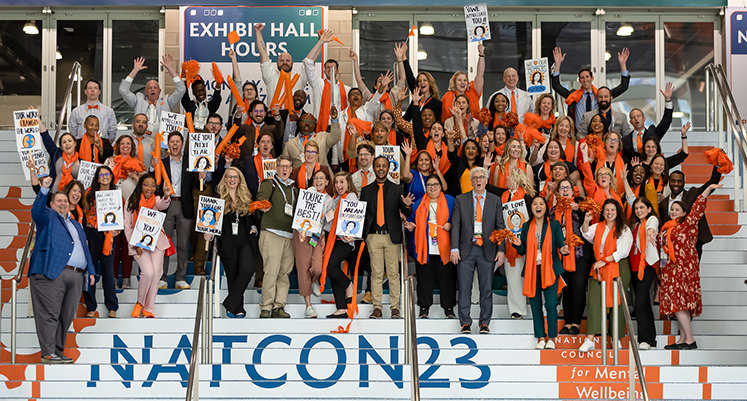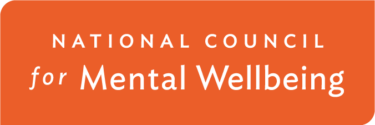About Us
We are the National Council for Mental Wellbeing, a 501(c)(3) association and the unifying voice of organizations that deliver mental health and substance use recovery services in America.
What is Mental Wellbeing?
It’s a state of thriving. It is the foundation of living a strong, healthy and fulfilling life. We believe that mental wellbeing can be reached by anyone, including people living with or recovering from a mental health or substance use challenge.

Our Vision
Despite overwhelming need, nearly 30 million people across the U.S. don’t have access to affordable, comprehensive mental health and substance use treatment. That’s where we come in.
We have been serving on the frontlines of mental health and substance use care since 1969, fighting to ensure all Americans receive the high-quality treatment they deserve. That means ensuring nondiscriminatory access to services, building capacity for care delivery, investing in the workforce and promoting mental wellbeing as a core component of health and health care.
We are guided by our vision that mental wellbeing — including recovery from substance use — is a reality for everyone, everywhere. It’s who we are. It’s what we do.
Who We Are

The National Council for Mental Wellbeing is a membership organization that drives policy and social change on behalf of more than 3,200 mental health and substance use treatment organizations and the more than 15 million children, adults and families they serve. We advocate for policies to ensure access to high-quality services. We build the capacity of mental health and substance use treatment organizations. And we promote greater understanding of mental wellbeing as a core component of comprehensive health and health care. Through our Mental Health First Aid (MHFA) program, we have trained more than 3 million people in the U.S. to identify, understand and respond to signs and symptoms of mental health and substance use challenges.
What We Do
We are more than a nonprofit. We are a thought leader, solutions provider and leading voice on Capitol Hill with a 55-year history of driving policy and social change.
We are fighting for a stronger, better-funded, more integrated approach to mental health and substance use care by advocating for lifesaving legislation, strengthening the substance use and mental health safety-net system, investing in provider capacity and increasing mental health literacy.
Transparency and Accountability
To provide transparency, The National Council is committed to sharing our GuideStar page:
On behalf of more than 3,200 member organizations nationwide, the National Council for Mental Wellbeing made significant strides in 2024, taking bold steps to strengthen, better fund and seamlessly integrate mental health and substance use care across the country.
